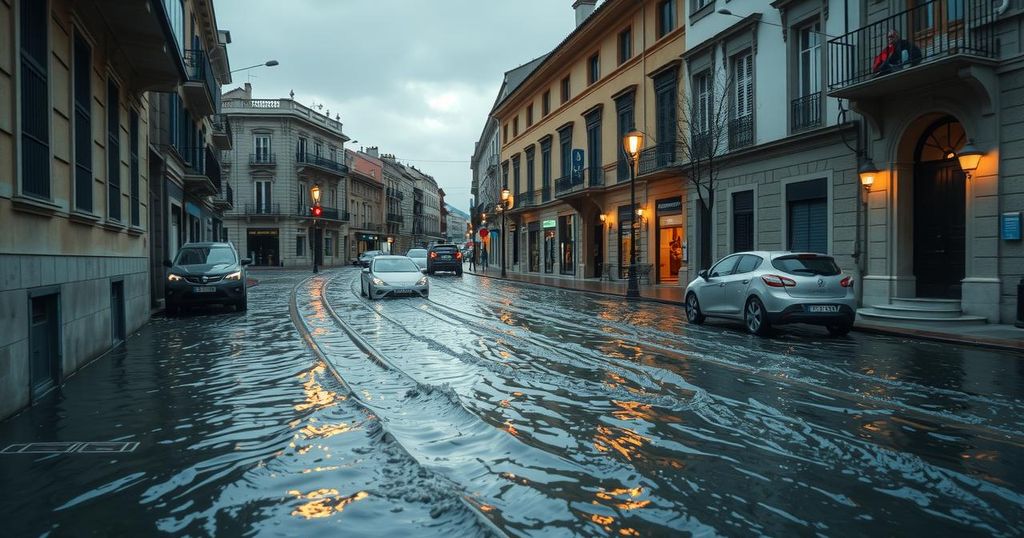Spain has experienced its worst flooding disaster in recent history, prompting questions about EU preparedness for climate change. The floods have caused extensive damage to infrastructure and businesses in Valencia. The government is providing over $11 billion in financial support for recovery, but the response has faced criticism from citizens who demand faster action.
The recent catastrophic floods in Spain, particularly affecting the eastern region of Valencia, have ignited significant concerns regarding the European Union’s preparedness for climate change. These deluges represent the most severe natural disaster that Spain has faced in recent times, with numerous scientists attributing the extreme weather events to the impacts of global warming. The damage inflicted has been extensive, disrupting critical infrastructure, transportation, and various businesses throughout the affected areas. As recovery efforts continue, the estimated financial toll is expected to be monumental. In light of this crisis, the Spanish government has sanctioned over $11 billion in loans and grants intended for supporting victims of the floods and storms. However, discontent among the populace has emerged, with many expressing frustration over what they perceive as an inadequate response to the emergency.
Flooding is increasingly being recognized as a dire consequence of climate change, with rising sea levels, intensified storm events, and unpredictable weather patterns contributing to severe disasters worldwide. Spain’s recent floods serve as a stark reminder of the urgent need for robust climate adaptation strategies within the European Union. Proactive measures are crucial to mitigating future impacts, safeguarding communities, and ensuring a swift response to such emergencies.
In conclusion, the flooding in Spain has not only devastated local communities but also thrown into sharp relief the broader implications of climate change and the preparedness of Europe as a whole. The substantial financial assistance proposed by the government signifies recognition of the problem; however, the backlash from citizens indicates a pressing need for a more effective and timely response to environmental catastrophes. As climate change continues to challenge nations worldwide, it is imperative for Europe to enhance its resilience against such threats.
Original Source: www.aljazeera.com






